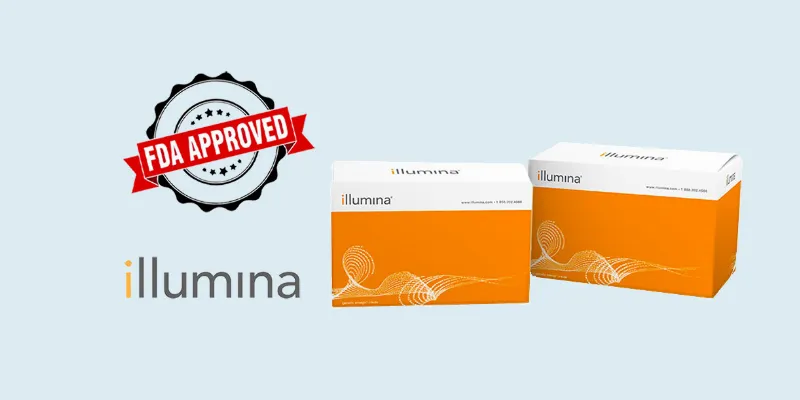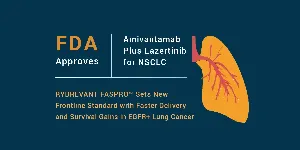FDA Approves TruSight Cancer Test for Matching Patients with Targeted Therapies


FDA & EMA |
2 September 2024
The FDA has approved Illumina's TruSight Oncology Comprehensive test as a companion diagnostic for two cancer indications. This biomarker test profiles over 500 genes in solid tumors, aiding in the precise matching of patients to targeted therapies and promising to enhance treatment success.
Illumina announced that the US Food and Drug Administration (FDA) has approved its TruSight Oncology (TSO) Comprehensive test for personalized cancer treatment. This game-changing in vitro diagnostic test lets clinicians identify optimal treatment strategies for patients with solid tumors. The approval covers conditions seldom found, such as neurotrophic tyrosine receptor kinase (NTRK) gene fusions and rearranged during transfection (RET) fusion-positive non-small-cell lung cancer (NSCLC).
Everett Cunningham, Chief Commercial Officer of Illumina, expressed his enthusiasm about the approval, stating, "This aproval marks an awaited milestone for our oncology community. We are committed to partnering with industry leaders like Bayer and Lilly to advance cancer diagnostics and help broaden access to precision oncology for more patients."
A New Era in Cancer Diagnostics
TSO Comprehensive test is the first FDA-approved, distributable comprehensive genomic profiling IVD kit with pan-cancer companion diagnostic claims. This means the test is not limited to a single type of cancer but can be applied across various solid tumor indications. This broad-spectrum capability is vital for enhancing the likelihood of detecting immuno-oncology biomarkers or clinically actionable markers that could guide treatment options or patient eligibility for clinical trials.
The test is particularly significant for its role in identifying patients eligible for specific treatments targeting NTRK gene fusions and RET fusion-positive NSCLC. For instance, patients with TRK fusion cancer may benefit from Bayer’s VITRAKVI® (larotrectinib), a highly selective TRK inhibitor, while those with RET fusion-positive NSCLC may respond to Lilly's RETEVMO® (selpercatinib), a potent RET kinase inhibitor.

Impact on Clinical Outcomes
NTRK gene fusions, while rare, present a substantial challenge due to their complexity and the variety of fusion partners. The TSO Comprehensive test's capability to also interrogate RNA allows for a broader identification of these gene fusions, enhancing the detection of known and novel gene fusion partners. Similarly, the test's comprehensive approach in NSCLC facilitates the simultaneous detection of multiple biomarkers, crucial for tailoring patient treatment plans more effectively.
Dr. Vivek Subbiah, Chief of Early-Phase Drug Development at Sarah Cannon Research Institute, emphasized the clinical significance of the test, “Illumina's newest distributable IVD kit for comprehensive genomic profiling and accompanying CDx enable another valuable clinical tool for the oncology community to match patients with targeted therapies that can vastly improve their journey and outcomes.”
Future Directions and Availability
Illumina plans to begin shipping TSO Comprehensive to customers this year, with the test already available in Europe under a CE mark since 2022. The company also has a growing pipeline of CDx claims under development, which are expected to further enhance the test's utility and applicability in the oncology field.
This approval not only marks a milestone in cancer diagnostics but also signifies a leap towards more personalized, effective treatment regimes, ensuring that more patients have access to the care they need based on their unique genetic profiles.
TruSight Oncology Comprehensive test and NSCLC
NSCLC is one of the most common types of lung cancer and the leading cause of cancer-related deaths globally. The expansive actionable biomarker landscape in NSCLC has driven the need for broad molecular profiling to enable a complete view of a patient's disease to better guide clinical management. The oncogenic activation of RET fusion-positive NSCLC by gene fusions is a primary driver in NSCLC, occurring in up to 2% of cases.











Comments
No Comments Yet!